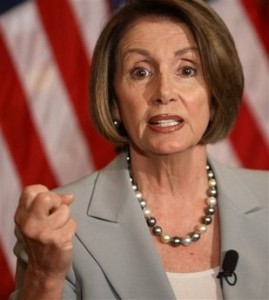
Many times you hear El Presidente and the Congress saying that their Obamacare requirement that everyone have health insurance or pay a tax is like having auto insurance. Poor analogy Mcfly. Auto insurance requirements are regulated by the States. While the states may have the power to do this, not so fast when it comes to the federal government.
Congress’ powers are limited. Good article in the WSJ on how the new health care reform out there is more likely than not unconstitutional. Here’s an excerpt:
The elephant in the room is the Constitution. As every civics class once taught, the federal government is a government of limited, enumerated powers, with the states retaining broad regulatory authority. As James Madison explained in the Federalist Papers: “[I]n the first place it is to be remembered that the general government is not to be charged with the whole power of making and administering laws. Its jurisdiction is limited to certain enumerated objects.” Congress, in other words, cannot regulate simply because it sees a problem to be fixed. Federal law must be grounded in one of the specific grants of authority found in the Constitution.
These are mostly found in Article I, Section 8, which among other things gives Congress the power to tax, borrow and spend money, raise and support armies, declare war, establish post offices and regulate commerce. It is the authority to regulate foreign and interstate commerce that—in one way or another—supports most of the elaborate federal regulatory system. If the federal government has any right to reform, revise or remake the American health-care system, it must be found in this all-important provision. This is especially true of any mandate that every American obtain health-care insurance or face a penalty.
The Supreme Court construes the commerce power broadly. In the most recent Commerce Clause case, Gonzales v. Raich (2005) , the court ruled that Congress can even regulate the cultivation of marijuana for personal use so long as there is a rational basis to believe that such “activities, taken in the aggregate, substantially affect interstate commerce.”
But there are important limits. In United States v. Lopez (1995), for example, the Court invalidated the Gun Free School Zones Act because that law made it a crime simply to possess a gun near a school. It did not “regulate any economic activity and did not contain any requirement that the possession of a gun have any connection to past interstate activity or a predictable impact on future commercial activity.” Of course, a health-care mandate would not regulate any “activity,” such as employment or growing pot in the bathroom, at all. Simply being an American would trigger it.
Health-care backers understand this and—like Lewis Carroll’s Red Queen insisting that some hills are valleys—have framed the mandate as a “tax” rather than a regulation. Under Sen. Max Baucus’s (D., Mont.) most recent plan, people who do not maintain health insurance for themselves and their families would be forced to pay an “excise tax” of up to $1,500 per year—roughly comparable to the cost of insurance coverage under the new plan.
But Congress cannot so simply avoid the constitutional limits on its power. Taxation can favor one industry or course of action over another, but a “tax” that falls exclusively on anyone who is uninsured is a penalty beyond Congress’s authority. If the rule were otherwise, Congress could evade all constitutional limits by “taxing” anyone who doesn’t follow an order of any kind—whether to obtain health-care insurance, or to join a health club, or exercise regularly, or even eat your vegetables.
Read the whole article here.
